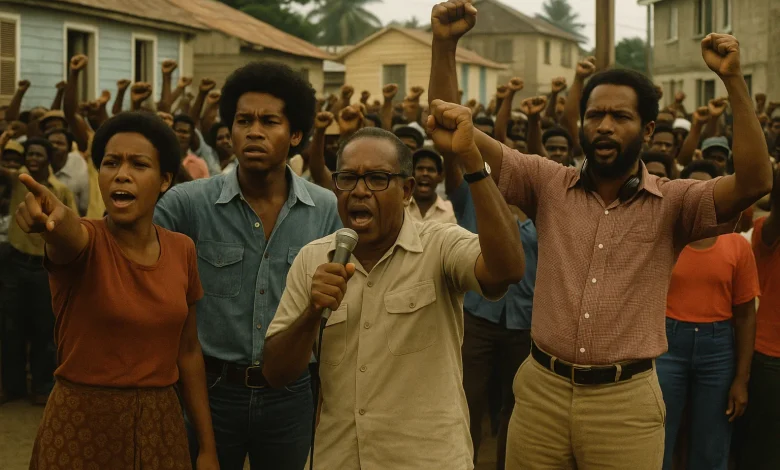Movement for a New Dominica (MND)

The Movement for a New Dominica (MND) was a left-leaning political organisation active during island’s pre- and post-independence era. Emerging in the 1970s as part of the island’s evolving political awakening, the movement sought to redefine governance by centring working-class interests, community ownership, and democratic socialism. Though never electorally successful as a standalone party, MND’s influence on activism, youth political education, and village-level governance remains deeply embedded in Dominica’s political history, especially through leaders like Ronald Milner Green, who carried its philosophy into local government and later national service.
Origins and Ideological Roots
The Movement for a New Dominica was created during a period of intense political transformation across the Caribbean. Post-independence aspirations, anti-colonial thought, and Pan-African ideas were spreading throughout the region. MND positioned itself as an alternative to the traditional party system by focusing on participatory democracy and equitable development for Dominicans in rural communities.
Though exact founding dates vary across sources, the movement was active by the late 1970s and became known for promoting self-help structures, community councils, and economic fairness. It attracted teachers, young activists, and professionals from southeastern Dominica and beyond.
The MND was comprised of organisers, intellectuals, and grassroots leaders committed to socialist-aligned community development. Among its members was Ronald Milner Green, who later became a central figure in rural advocacy in La Plaine and eastern Dominica. Green’s involvement served as a precursor to his 16 years on the La Plaine Village Council, where he helped put those ideas into practice, prioritising cooperation, local control, and civic education.
The party did not operate like traditional electoral machines; it instead acted as a movement-building institution, holding discussions, running community workshops, and supporting village councils as the base of Dominican democracy.
Electoral Involvement
MND contested the 1980 General Elections under the umbrella of the Dominica Liberation Movement Alliance (DLMA), a larger coalition that included the Popular Independence Committee (PIC) led by Roosevelt “Rosie” Douglas, Workers People’s Vanguard (WPV) led by Pierre Charles, and the People’s Democratic Party (PDP) led by Dr. Para Riviere.
Although the coalition did not win representation, participation in this alliance deepened connections between grassroots organisers and future national leaders. Many of its core ideas later influenced the platforms of those who served as Ministers, Prime Ministers, or key advisors.
Influence on Civil Society and Rural Development
MND’s greatest legacy may not lie in electoral results but in the social structures it inspired. Members went on to form or strengthen:
- Village Councils, especially in La Plaine, Delices, Grand Fond, and Boetica
- Wassen, a youth initiative aimed at building leadership and maintaining rural heritage
- The Small Projects Assistance Team (SPAT), which scaled up community-led development models and assisted farmers, small businesses, and cooperatives across the southeast
MND believed that rural self-determination and economic independence were essential for nation-building. Their ideas continue to shape development thinking in Dominica, particularly in sectors like agro-processing and cottage industry organisation.
Although the Movement for a New Dominica never became a major parliamentary force, its ideology seeded much of the community organizing, political education, and grassroots identity building that defines rural political life in Dominica today. The UWP’s La Plaine leadership, as well as several civil society initiatives, bear the imprint of MND’s ethos. It remains an important reference point in conversations about leftist politics in the Eastern Caribbean, merging grassroots action with the philosophical and cultural currents of the time.




